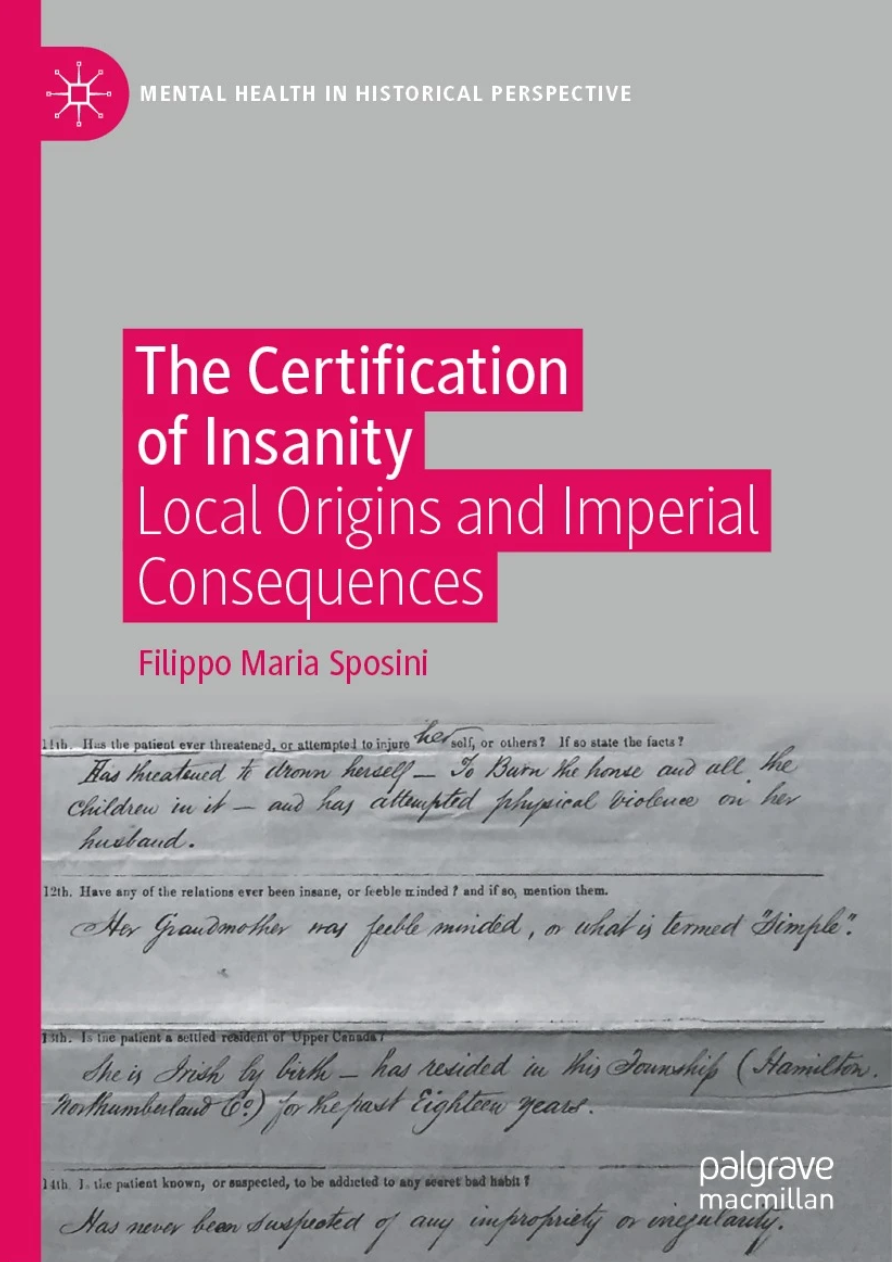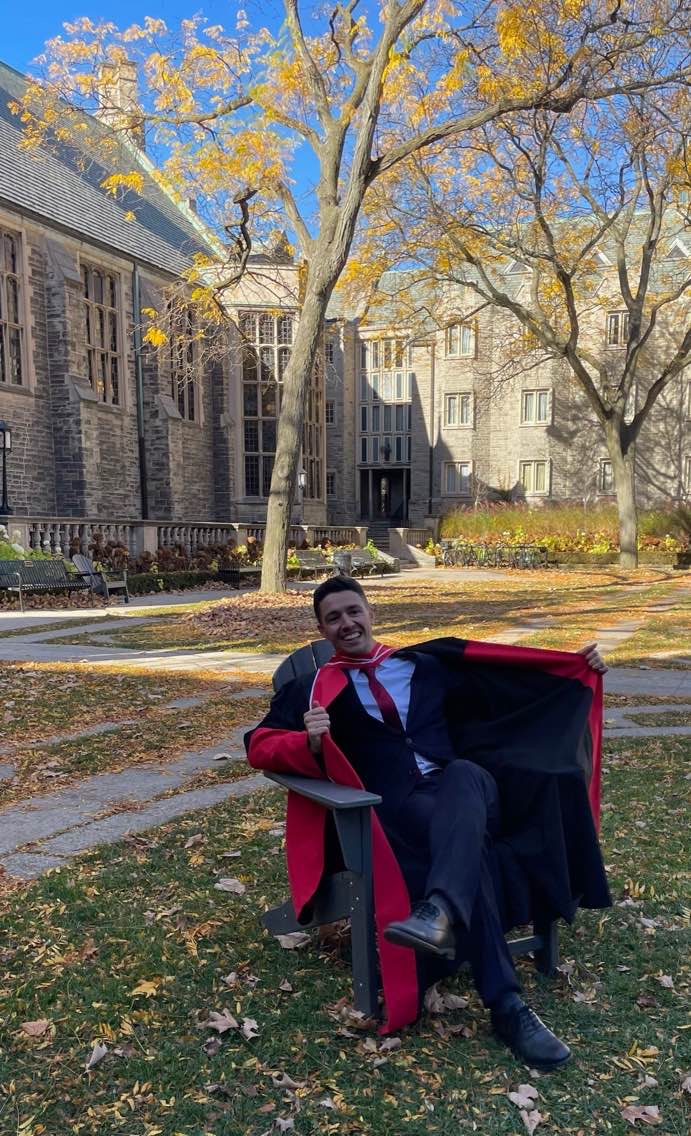After completing his master’s degree in psychology in Italy in 2016, Filippo Sposini felt there was still so much more to learn. He wondered why psychology had been so relevant in the last century, and also about the methods, problems and theories of psychological disciplines.
His search for PhD programs soon led Sposini to Canada, to U of T and, eventually, to work in the Publishing Development Division of one of the leading scientific publishers in the world.

One of Sposini’s favourite memories about earning his PhD in the Institute for the History & Philosophy of Science & Technology (IHPST) is “Normality: A Critical History,” a class he designed and taught during his last year in the program. He distinctly remembers showing up at University College, one of the most representative buildings of the University of Toronto.
“It was really a great feeling that after so many efforts and coming such a long way, you get the chance to teach at a very great university your own piece, something you've worked on, something you know, something you're passionate about,” he says.
Now back in Italy, in addition to his editorial job, he teaches psychology courses at the Umbra Institute, an institution that welcomes students from the U.S. and around the world who want to take college courses abroad.
The path to getting a PhD is long and requires much effort, but Sposini’s was also shaped by the pandemic. The day he presented his specialization exam, Canada went into full lockdown, and Europe — particularly Italy — was enduring some of the worst scenarios at the time. This had a significant impact on international students, but also consequences in the academic field, which required quick thinking to change plans regarding dissertation topics or research trips based on which primary sources could be available. Despite this, Sposini persisted and proposed a new dissertation topic that explored the local origins and global consequences of the certification of insanity in the British Empire. When asked about his biggest accomplishment at the IHPST, he sums it up with just one word: “persistence.” This persistence paid off, as a book based on his research has been recently published by Palgrave McMillan.
Writing has been central in Filippo’s career, but writing in English for academic readers was a new learning path. When he started the program his writing style “was sort of more geared toward the European way of structuring and writing essays,” but changed thanks to the support of professors Mark Solovey and Marga Vicedo.
“It was tough feedback at the beginning. I would submit an essay a 10,000-word essay, and I would get 10,000-word feedback from them. But it was extremely important because eventually when I got to the dissertation phase, I felt much more confident. I felt much more at ease,” he says.
The IHPST, he remembers, was a place in which he improved his English writing and that allowed him to participate in class with confidence, bringing his perspective while hearing from professors and colleagues from diverse backgrounds.
“The Institute gave me the chance to grow intellectually, to learn about different things, to get to grip with the historical method, to learn how historians think, and at the same time, not losing track of philosophical questions,” he says.
These experiences paved the path for Filippo’s current professional activities. When he finished his PhD, he had published articles in the History of Behavioral Sciences, the Canadian Medical Association Journal, and the Journal of the History of Medicine and Allied Sciences, which helped him acquire knowledge on how the academic publishing industry worked in English and in more than one discipline. He is now working for two big journals: Frontiers in Public Health and Frontiers in Oncology, but he has also worked on selecting editorial boards for Frontiers in Psychiatry. As part of his job, Sposini contacts scholars from around the world to ensure they have the right qualifications to be part of the team of experts for each title.
“It is specially related to the IHPST, where we ask questions about how science is produced on an everyday basis and what are the different factors that affect scientific production,” he says.
“I am working in the same area, talking pretty much with the same people, scholars, and researchers. I am familiar with their priorities, especially the priorities of young scholars in different jurisdictions, so that has remained the same,” he says.

